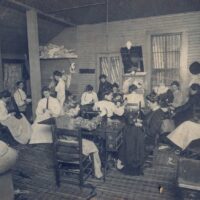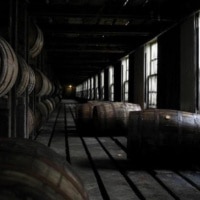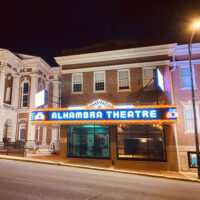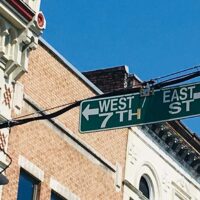Several dozen women marched behind a police escort from the Christian County Courthouse to the Justice Center chanting “votes for women” Tuesday afternoon to mark the 100th anniversary of the 19th Amendment.
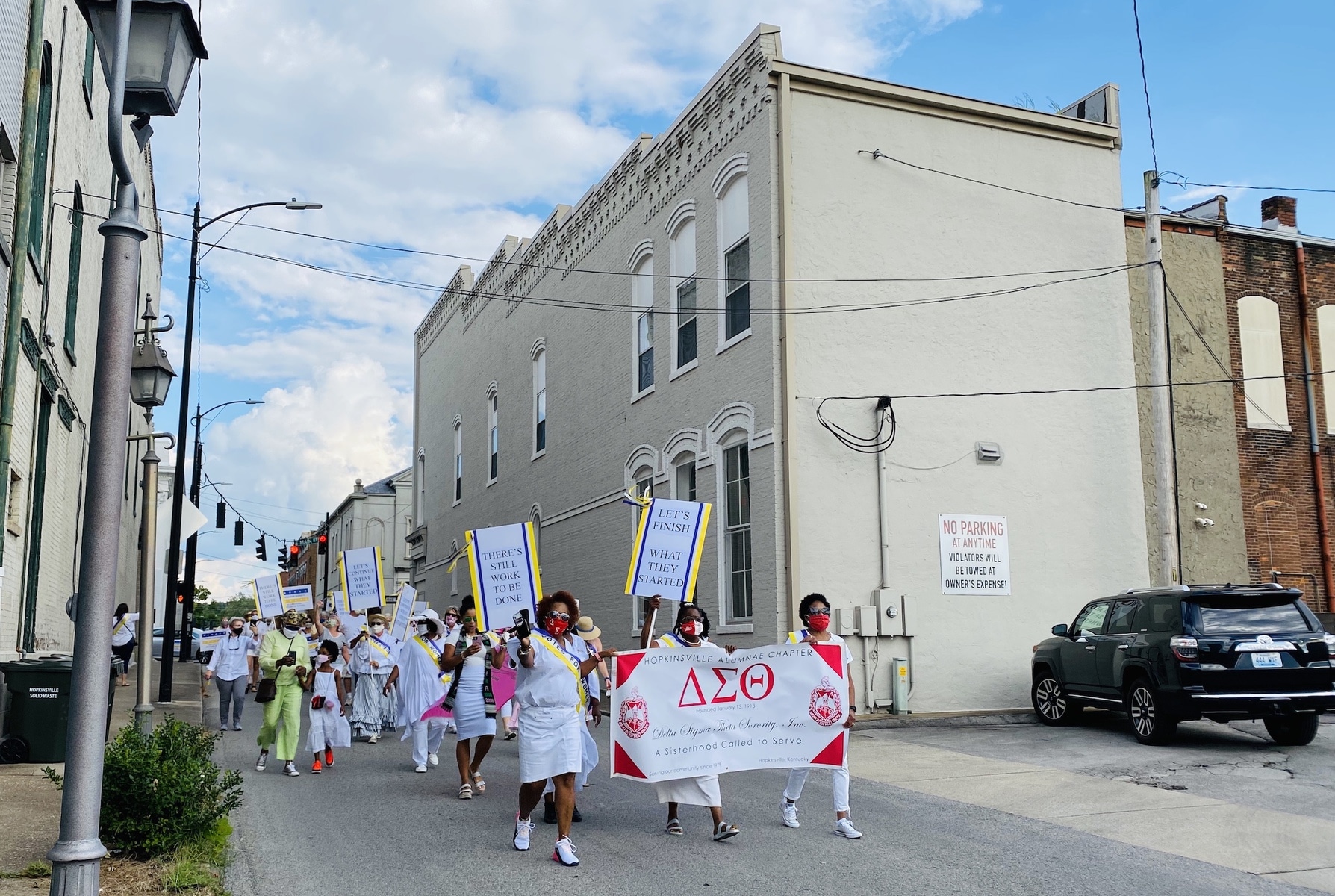
Most of the marchers were dressed in white — the color chosen by suffragettes a century ago to represent purity — and wore sashes celebrating the landmark victory that recognized a woman’s right to vote. Everyone appeared to have a mask to help prevent the spread of the coronavirus. Heading up South Main and then to Seventh Street, the marchers carried American flags and banners that proclaimed “Let’s finish what they started” and “There’s still work to be done.”
In a brief rally in front of the Justice Center, longtime League of Women Voters representative Carolyn Self brought a modern political message to the commemoration. Concerns persist today about efforts to suppress votes in the United States, said Self.
“Now we have to protect the post office, of all things,” she said, referring to President Trump’s threats to withhold coronavirus funding intended to help the U.S. Postal Service handle mail ballots in the November general election.
Most of the Hopkinsville rally, though, was devoted to the history of women’s suffrage, including the story of a young state legislator who broke a tie vote in the Tennessee House on Aug. 18, 1920, which secured the 36th state needed to ratify the 19th Amendment. He was Harry T. Burn, a 24-year-old Republican who worked for the Southern Railway.
Burn favored the amendment but was pressured by other lawmakers and constituents to join the opposition. On the day of the vote, he wore a red rose in his coat lapel, which signaled his opposition. The “antis” wore red roses; the “pros” had yellow buds.
But Burn also had with him that day a letter from his mother, Febb Burn, who was back at the family farm in McMinn County. She urged him to vote for the women. Her letter told him, “Don’t forget to be a good boy …” and ended, “With lots of love, Mama.”
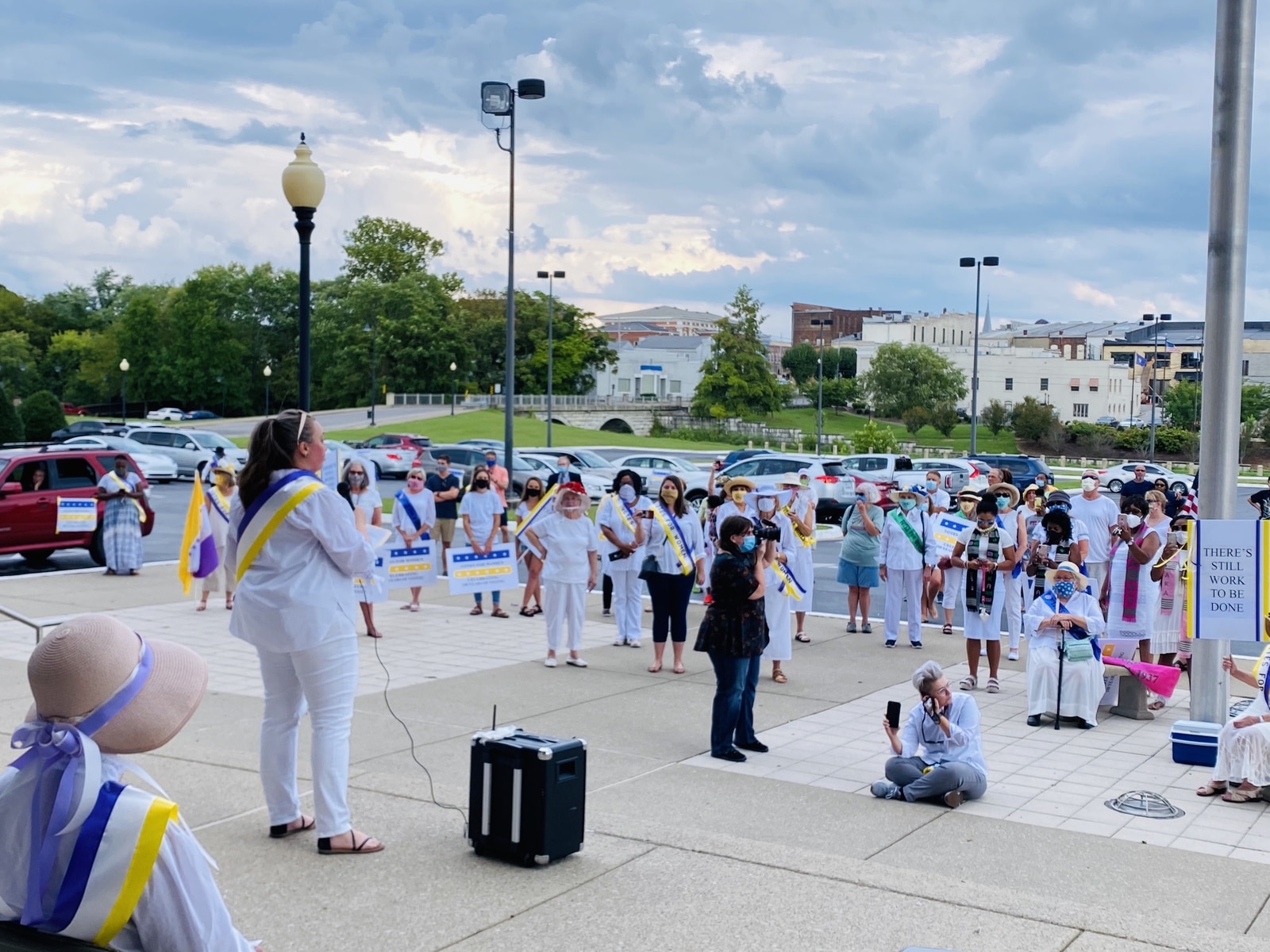
Hopkinsville had its own historic figures in the political fight to secure the vote for women.
Alissa Keller, executive director of the Museums of Historic Hopkinsville-Christian County, spoke about two — Bettiola Heloise Fortson and Mary Bronaugh.
Fortson, born in Hopkinsville in 1890, was a published poet and essayist and a leader of black suffragettes during the 1910s in Chicago. She was only 26 years old when she died. Her eulogy was given by the famous journalist and anti-lynching activist Ida B, Wells.
Bronaugh, born in Hopkinsville five years before Fortson, studied at the Chicago Law School and was among the first woman in Kentucky to pass the bar. She was active in the suffrage movement and was the first president of the Kentucky League of Women Voters. She died in 1973.
Earlier this year, the Kentucky Historical Society approved a historical marker for Bronaugh in Hopkinsville.
Ruth Lature, a retired educator who prepared the application to KHS, said the marker’s installation has been delayed by the coronavirus pandemic but could be scheduled later this year. It will be in front of the Justice Center.
Jennifer P. Brown is co-founder, publisher and editor of Hoptown Chronicle. You can reach her at editor@hoptownchronicle.org. Brown was a reporter and editor at the Kentucky New Era, where she worked for 30 years. She is a co-chair of the national advisory board to the Institute for Rural Journalism and Community Issues, governing board past president for the Kentucky Historical Society, and co-founder of the Kentucky Open Government Coalition. She serves on the Hopkinsville History Foundation's board.

